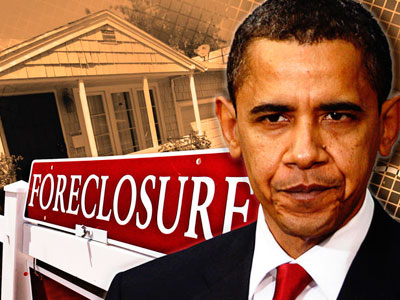- “28 USC 3002” (definition of the United States as a Federal corporation never taught in civics class; go to paragraph 15) http://www.law.cornell.edu/uscode/uscode28/usc_sec_28_00003002----000-.html
- “27 CFR 72.11” (U.S. Inc. defines all crime as commercial as a result of the fall of the republic when the South walked out of congress in 1861 and the de jure congress, unable to raise a quorum, was replaced by Lincoln with the de facto corporate Congress; and the de jure district court of the United States was replaced by the de facto corporate UNITED STATES DISTRICT COURT http://www.access.gpo.gov/nara/cfr/waisidx_98/27cfr72_98.html
- “Executive Order 6102” (government’s confiscation of your family’s gold and wealth under threat of 10 years in prison for failure to comply. As the Order specifies U.S. “persons” (eg. JOHN SMITH and JANE DOE), law enforcement was duped into enforcing against the general public a command that only applied to Federal employees and members of the armed forces.) http://www.presidency.ucsb.edu/ws/index.php?pid=14611 or http://www.the-privateer.com/1933-gold-confiscation.html
- “HJR 192” (outlawing of the simple act of “paying with money” as a felony by substituting the lawyer’s parlor trick of “discharging” debts) http://www.truthsetsusfree.com/HJR192.htm or http://www.nomoredebt.cc/hjr192.html
- “Congressman Louis McFadden speech” (indictment of the Secretary of the Treasury and the Federal Reserve Board of Governor’s for treason by the chairman of the House Banking and Currency committee in 1934. In scathing speeches to Congress, McFadden said: “(The Fed) has impoverished and ruined the people of these United States, has bankrupted itself, and has practically bankrupted our Government.” This most knowledgeable man on banking also explained in vivid detail the method for recruiting the Federal Reserve to pay our debts as holder of the gold, and which is at the heart of today’s “tax remedies.”) http://www.geocities.com/Heartland/7006/mcfadden-frb.html or http://www.geocities.com/CapitolHill/Senate/3616/flaherty10.html and http://en.wikipedia.org/wiki/Louis_T._McFadden
- “Lewis v. United States 680” (Federal Reserve Bank is privately owned: “…we conclude that the Reserve Banks are not federal instrumentalities for purposes of the FTCA (Federal Tort Claims Act), but are independent, privately owned and locally controlled corporations.” Lewis v United States, 680 F.2d 1239 (9th Cir. 1982). In other words, the Fed enjoys no United States immunity from law suit because it is a Federal institution in name only. http://nesara.org/court_summaries/lewis_v_united_states.htm and http://www.geocities.com/chrisforliberty/lewis.html
- “Modern Money Mechanics” (The Fed’s concise operational manual showing how money AND INTENTIONAL INFLATION are created from thin air by the Fed and it’s member banks. The manual is very clear as to the power of created inflation to speed the process of confiscating your wealth. The section: “Who Creates Money?” and the final paragraph in “Bank Deposits – How They Expand or Contract” are worth extra attention.) www.rayservers.com/images/ModernMoneyMechanics.pdf or http://en.wikisource.org/wiki/Modern_Money_Mechanics/Introduction
- “Grace Commission” (Confirmed that virtually ALL taxes actually go to the Federal Reserve Bank to pay interest on the U.S. debt to the banking families that own the International Monetary Fund (IMF): “With two-thirds of everyone's personal income taxes wasted or not collected, 100 percent of what is collected is absorbed solely by interest on the Federal debt and by Federal Government contributions to transfer payments. In other words, all individual income tax revenues are gone before one nickel is spent on the services which taxpayers expect from their Government.” J. Peter Grace, Cover letter, President’s Private Sector Report on Cost Control, January 12, 1984. Peter Grace was considered the Warren Buffett of his time, and the Grace Commission Report received widespread media attention as the gospel of Reagan’s so-called tax system overhaul.) http://www.freecanadian.net/articles/grace.html or http://www.uhuh.com/taxstuff/gracecom.htm
- “31 CFR 103.11” (Promissory note is defined as a “monetary instrument:” “(u) Monetary instruments…Monetary instruments include…All negotiable instruments (including personal checks, business checks, official bank checks, cashier's checks, third-party checks, promissory notes (as that term is defined in the Uniform Commercial Code), and money orders) that are either in bearer form, endorsed without restriction, made out to a fictitious payee (for the purposes of Sec. 103.23), or otherwise in such form that title thereto passes upon delivery.”) http://edocket.access.gpo.gov/cfr_2008/julqtr/31cfr103.11.htm or http://www.ffiec.gov/bsa_aml_infobase/pages_manual/regulations/31CFR103.htm
- “NYUCC 3-104” (Promissory note is defined as a “negotiable instrument:” “(1) Any writing to be a negotiable instrument within this Article must (a) be signed by the maker or drawer; and (b) contain an unconditional promise or order to pay a sum certain in money and no other promise, order, obligation or power given by the maker or drawer except as authorized by this Article; and (c) be payable on demand or at a definite time; and (d) be payable to order or to bearer. (2) A writing which complies with the requirements of this section is (a) a "draft" ("bill of exchange") if it is an order; (b) a "check" if it is a draft drawn on a bank and payable on demand; (c) a "certificate of deposit" if it is an acknowledgment by a bank of receipt of money with an engagement to repay it; (d) a "note" if it is a promise other than a certificate of deposit.) www.law.cornell.edu/ucc/3/3-104.html
- “Senate Report 93-549” (The United States has been under dictatorial control since March 9, 1933. Report of the Special Committee on the Termination of the National Emergency, Senate Report 93-549, War and Emergency Powers Acts, November 19, 1973. “Foreward: Since March 9, 1933, the United States has been in a state of declared national emergency…These proclamations give force to 470 provisions of Federal law. These hundreds of statutes delegate to the President extraordinary powers, ordinarily exercised by the Congress, which affect the lives of American citizens in a host of all-encompassing manners. This vast range of powers, taken together, confer enough authority to rule the country without reference to normal Constitutional processes. Under the powers delegated by these statutes, the President may: seize property; organize and control the means of production; seize commodities; assign military forces abroad; institute martial law; seize and control all transportation and communication; regulate the operation of private enterprise; restrict travel; and, in a plethora of particular ways, control the lives of all American citizens.”) http://www.scratchinpost.net/barefootbob/war_ep1.html
- “Foley Brothers, Inc. v. Filardo, 336 U.S. 281 (1949).” (U.S. regulations apply only within the U.S. territories and the District of Columbia. “It is a well established principle of law that all federal regulation applies only within the territorial jurisdiction of the United States unless a contrary intent appears.”)
- “Caha v. US, 152 U.S. 211 (1894)” (U.S. regulations apply only within the U.S. territories and the District of Columbia. “The laws of Congress in respect to those matters [outside of Constitutionally delegated powers] do not extend into the territorial limits of the states, but have force only in the District of Columbia, and other places that are within the exclusive jurisdiction of the national government.”)
- “U.S. v. Spelar, 338 U.S. 217 at 222.” (U.S. regulations apply only within the U.S. territories and the District of Columbia. “There is a canon of legislative construction which teaches Congress that, unless a contrary intent appears [legislation] is meant to apply only within the territorial jurisdiction of the United States.”)
- “Downes v. Bidwell, 182 U.S. 244 (1901).” (Purportedly decided if the constitution applies to U.S. territories. In actuality, unleashed the great fraud of unlimited statutory power misapplied throughout the continental united States of America. Dissenting opinion of Justice Marshall Harlan. “…two national governments, one to be maintained under the Constitution, with all its restrictions, the other to be maintained by Congress outside and independently of that instrument, by exercising such powers as other nations of the earth are accustomed to…a radical and mischievous change in our system of government will result…We will, in that event, pass from the era of constitutional liberty guarded and protected by a written constitution into an era of legislative absolutism…It will be an evil day for American liberty if the theory of a government outside the supreme law of the land finds lodgment in our constitutional jurisprudence.” In other words, a genuine de jure united States of America congress is always bound to enact laws within the jurisdiction of the constitution. He held tyo the obvious truth that congress does not exist, let alone have powers, outside the constitution. Harlan said, "This nation is under the control of a written constitution, the supreme law of the land and the only source of the powers which our government, or any branch or officer of it, may exert at any time or at any place.")
- Section 802, Patriot Act. (Defining the People as terrorists. Defining terrorism as a maritime event. Excluding private meetings on the land from terrorism: “(5) the term `domestic terrorism' means activities that--(A) involve acts dangerous to human life that are a violation of the criminal laws of the United States or of any State; (B) appear to be intended-- (i) to intimidate or coerce a civilian population; (ii) to influence the policy of a government by intimidation or coercion; or (iii) to affect the conduct of a government by mass destruction, assassination, or kidnapping; and (C) occur primarily within the territorial jurisdiction of the United States.”) http://www.ratical.org/ratville/CAH/Section802.html
sk
"The very purpose of a Bill of Rights was to withdraw certain subjects from the vicissitudes of political controversy, to place them beyond the reach of majorities and officials and to establish them as legal principles to be applied by the courts. One's right to life, liberty and property, to free speech, a free press, freedom of worship and assembly, and other fundamental rights may not be submitted to vote; they depend on the outcome of no elections." West Virginia State Board of Education v. Barnette - 319 U.S. 623
“No right is held more sacred, or is more carefully guarded by the common law, than the right of every individual to the possession and control of his own person, free from all restraint or interference of others, unless by clear and unquestionable authority of law. As well said by Judge Cooley: 'The right to one's person may be said to be a right of complete immunity; to be let alone.' Cooley, Torts, 29.” Union Pac Ry Co v. Botsford, 141 U.S. 250, 11 S.Ct. 1000, 35 L.Ed. 734 (1891)
Commonlaw Copyright © 2010 My Private Audio - All Rights Reserved
Useful Links
Useful Links

See also
CASE DECISIONS REGARDING PROOF OF CLAIM
Please see list below of hidden case law hidden from the public, supporting our position that the banks operate in fraud.
CASE DECISIONS:
Patton v. Diemer, 35 Ohio St. 3d 68; 518 N.E.2d 941; 1988). A judgment rendered by a court lacking subject matter jurisdiction is void abinitio. Consequently, the authority to vacate a void judgment is not derived from Ohio R. Civ. P. 60(B), but rather
constitutes an inherent power possessed by Ohio courts. I see no evidence to the contrary that this would apply to ALL courts.
“A party lacks standing to invoke the jurisdiction of a court unless he has, in an individual or a representative capacity, some real interest in the subject matter of the action. Lebanon Correctional Institution v. Court of Common Pleas 35 Ohio St.2d 176
(1973).
“A party lacks standing to invoke the jurisdiction of a court unless he has, in an individual or a representative capacity, some real interest in the subject matter of an action.” Wells Fargo Bank, v. Byrd, 178 Ohio App.3d 285,2008-Ohio-4603,897 N.E.2d
722(2008). It went on to hold, ” If plaintiff has offered no evidence that it owned the note and mortgage when the complaint was filed, it would not be entitled to judgment as a matter of law”
(The following court case was unpublished and hidden from the public)
Wells Fargo, Litton Loan v. Farmer, 867 N.Y.S.2d 21 (2008). “Wells Fargo does not own the mortgage loan… Therefore, the… matter is dismissed with prejudice.”
(The following court case was unpublished and hidden from the public)
Wells Fargo v. Reyes, 867 N.Y.S.2d 21 (2008). Dismissed with prejudice, Fraud on Court & Sanctions. Wells Fargo never owned the Mortgage.
(The following court case was unpublished and hidden from the public)
Deutsche Bank v. Peabody, 866 N.Y.S.2d 91 (2008). EquiFirst, when making the loan, violated Regulation Z of the Federal Truth in Lending Act15 USC §1601and the Fair Debt Collections Practices Act 15 USC §1692; "intentionally created fraud in the
factum" and withheld from plaintiff… "vital information concerning said debt and all of the matrix involved in making the loan".
(The following court case was unpublished and hidden from the public)
Indymac Bank v. Boyd, 880 N.Y.S.2d 224 (2009). To establish a prima facie case in an action to foreclose a mortgage, the plaintiff must establish the existence of the mortgage and the mortgage note. It is the law's policy to allow only an aggrieved person to bring a lawsuit . . . A want of "standing to sue," in other words, is just another way of saying that this particular plaintiff is not involved in a genuine controversy, and a simple syllogism takes us from there to a "jurisdictional" dismissal:
(The following court case was unpublished and hidden from the public)
Indymac Bank v. Bethley, 880 N.Y.S.2d 873 (2009). The Court is concerned that there may be fraud on the part of plaintiff or at least malfeasance Plaintiff INDYMAC (Deutsche) and must have "standing" to bring this action.
(The following court case was unpublished and hidden from the public)
Deutsche Bank National Trust Co v.Torres, NY Slip Op 51471U (2009). That "the dead cannot be sued" is a well established principle of the jurisprudence of this state plaintiff's second cause of action for declaratory relief is denied. To be entitled to a
default judgment, the movant must establish, among other things, the existence of facts which give rise to viable claims against the defaulting defendants. “The doctrine of ultra vires is a most powerful weapon to keep private corporations within their legitimate
spheres and punish them for violations of their corporate charters, and it probably is not invoked too often…” Zinc Carbonate Co. v. First National Bank,103 Wis. 125,79 NW 229(1899). Also see: American Express Co. v. Citizens State Bank, 181 Wis. 172, 194 NW 427(1923).
(The following court case was unpublished and hidden from the public)
Wells Fargo v. Reyes, 867 N.Y.S.2d 21 (2008). Case dismissed with prejudice, fraud on the Court and Sanctions because Wells Fargo never owned the Mortgage.
(The following court case was unpublished and hidden from the public)
Wells Fargo, Litton Loan v. Farmer, 867 N.Y.S.2d 21 (2008). Wells Fargo does not own the mortgage loan. "Indeed, no more than (affidavits) is necessary to make the prima facie case." United States v. Kis, 658 F.2d, 526 (7th Cir. 1981).
(The following court case was unpublished and hidden from the public)
Indymac Bank v. Bethley, 880 N.Y.S.2d 873 (2009). The Court is concerned that there may be fraud on the part of plaintiff or at least malfeasance Plaintiff INDYMAC (Deutsche) and must have "standing" to bring this action.
Lawyer responsible for false debt collection claim Fair Debt Collection Practices Act,15 USCS §§ 1692-1692o, Heintz v. Jenkins,514 U.S. 291; 115 S. Ct. 1489, 131 L. Ed. 2d 395 (1995). and FDCPA Title 15 U.S.C. sub section 1692. In determining whether the plaintiffs come before this Court with clean hands, the primary factor to be considered is whether the plaintiffs sought to mislead or deceive the other party, not whether that party relied upon plaintiffs' misrepresentations. Stachnik v. Winkel,394 Mich. 375, 387; 230 N.W.2d 529, 534 (1975).
"Indeed, no more than (affidavits) is necessary to make the prima facie case."United States v. Kis, 658 F.2d, 526 (7th Cir. 1981). Cert Denied, 50 U.S. L.W. 2169; S. Ct. March 22, (1982).
“Silence can only be equated with fraud where there is a legal or moral duty to speak or when an inquiry left unanswered would be intentionally misleading.” U.S. v. Tweel,550 F.2d 297(1977).
“If any part of the consideration for a promise be illegal, or if there are several considerations for an un-severable promise one of which is illegal, the promise, whether written or oral, is wholly void, as it is impossible to say what part or which one of the considerations induced the promise.” Menominee River Co. v.Augustus Spies L & C Co., 147 Wis. 559 at p. 572;132 NW 1118(1912). Federal Rule of Civil Procedure 17(a)(1) which requires that “[a]n action must be prosecuted in the name of the real party in interest.” See also, In re Jacobson, 402 B.R. 359, 365-66 (Bankr. W.D. Wash. 2009); In re Hwang, 396 B.R. 757, 766-67 (Bankr.C.D. Cal. 2008). Mortgage Electronic Registration Systems, Inc. v. Chong, 824 N.Y.S.2d 764 (2006). MERS did not have standing as a real party in interest under the Rules to file the motion… The declaration also failed to assert that MERS, FMC Capital LLC or Homecomings Financial, LLC held the Note. Landmark National Bank v. Kesler, 289 Kan. 528,216 P.3d 158(2009).
“Kan. Stat. Ann. § 60-260(b) allows relief from a judgment based on mistake, inadvertence, surprise, or excusable neglect; newly discovered evidence that could not have been timely discovered with due diligence; fraud or misrepresentation; a void judgment; a judgment that has been satisfied, released, discharged, or is no longer equitable; or any other reason justifying relief from the operation of the judgment. The relationship that the registry had to the bank was more akin to that of a straw man than to a party possessing all the rights given a buyer.” Also In September of 2008, A California Judge ruling against MERS concluded, “There is no evidence before the court as to who is the present owner of the Note. The holder of the Note must join in the motion.” LaSalle Bank v. Ahearn, 875 N.Y.S.2d 595 (2009). Dismissed with prejudice.
Lack of standing.
Novastar Mortgage, Inc v. Snyder 3:07CV480 (2008). Plaintiff has the burden of establishing its standing. It has failed to do so. DLJ Capital, Inc. v. Parsons, CASE NO. 07-MA-17 (2008).



Brotherhood of Trainmen v. Virginia ex rel. Virginia State Bar (377 U.S. 1); Gideon v. Wainwright 372 U.S. 335; Argersinger v. Hamlin, Sheriff 407 U.S. 425. Litigants
may be assisted by unlicensed layman during judicial proceedings.